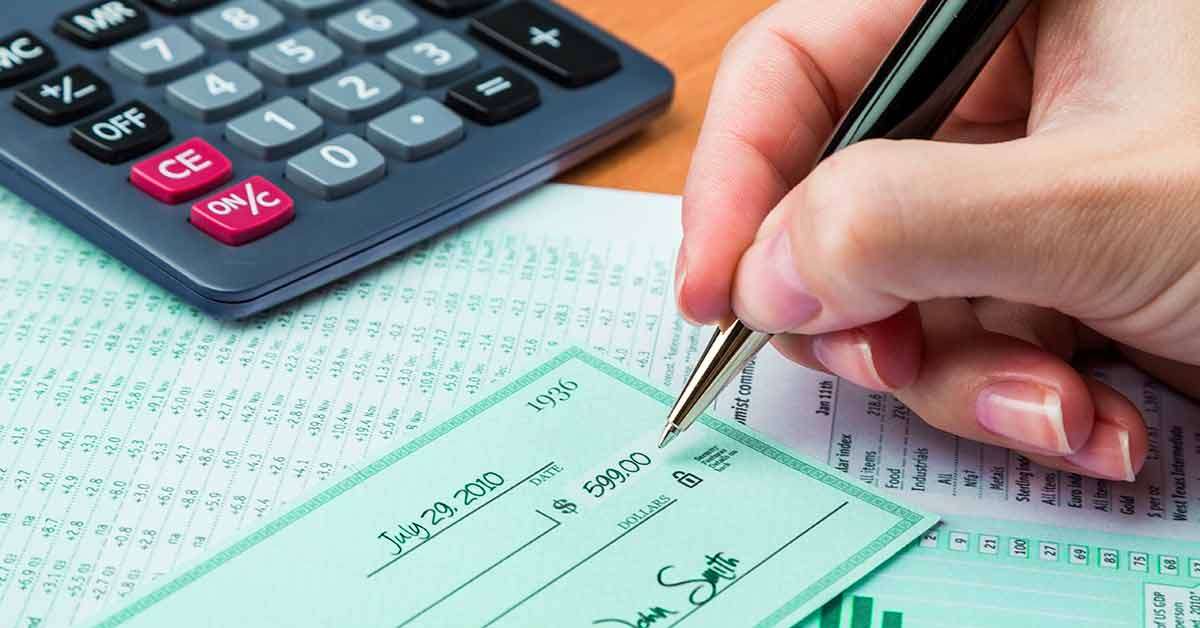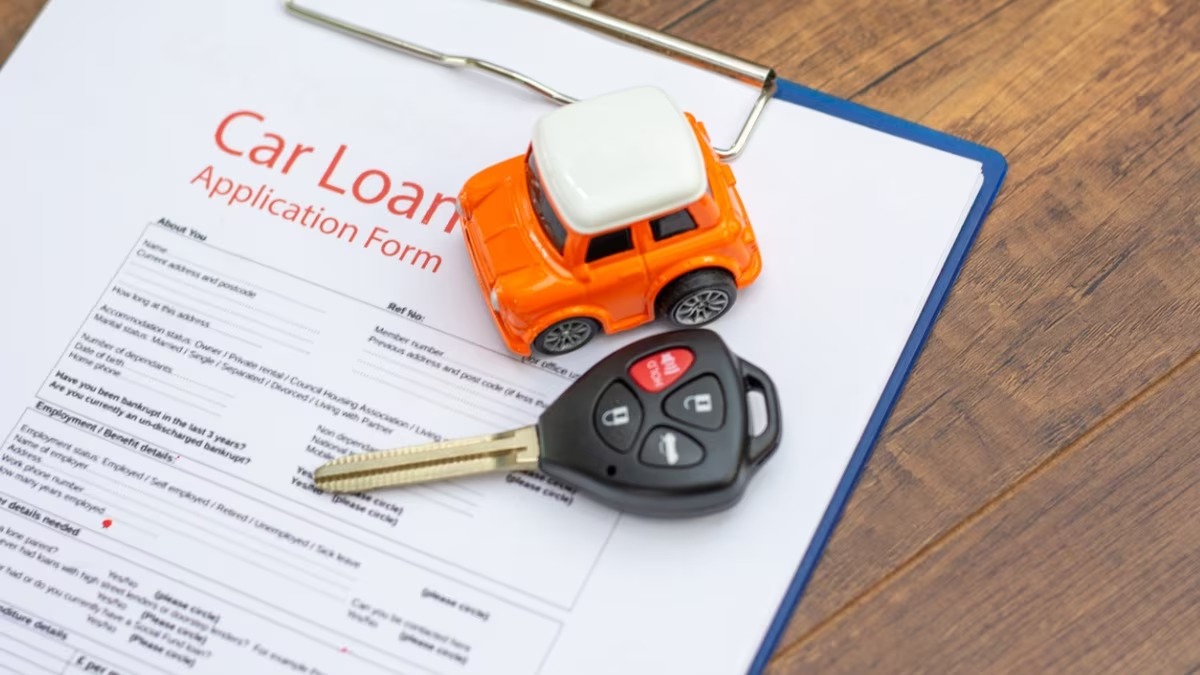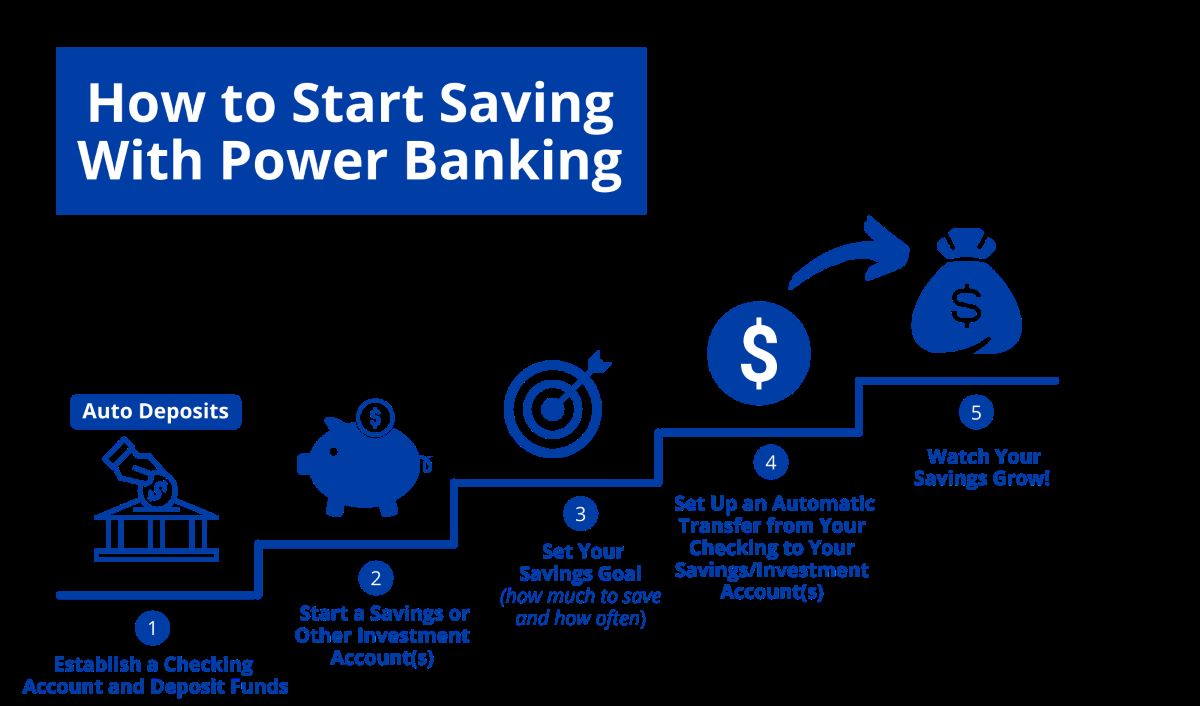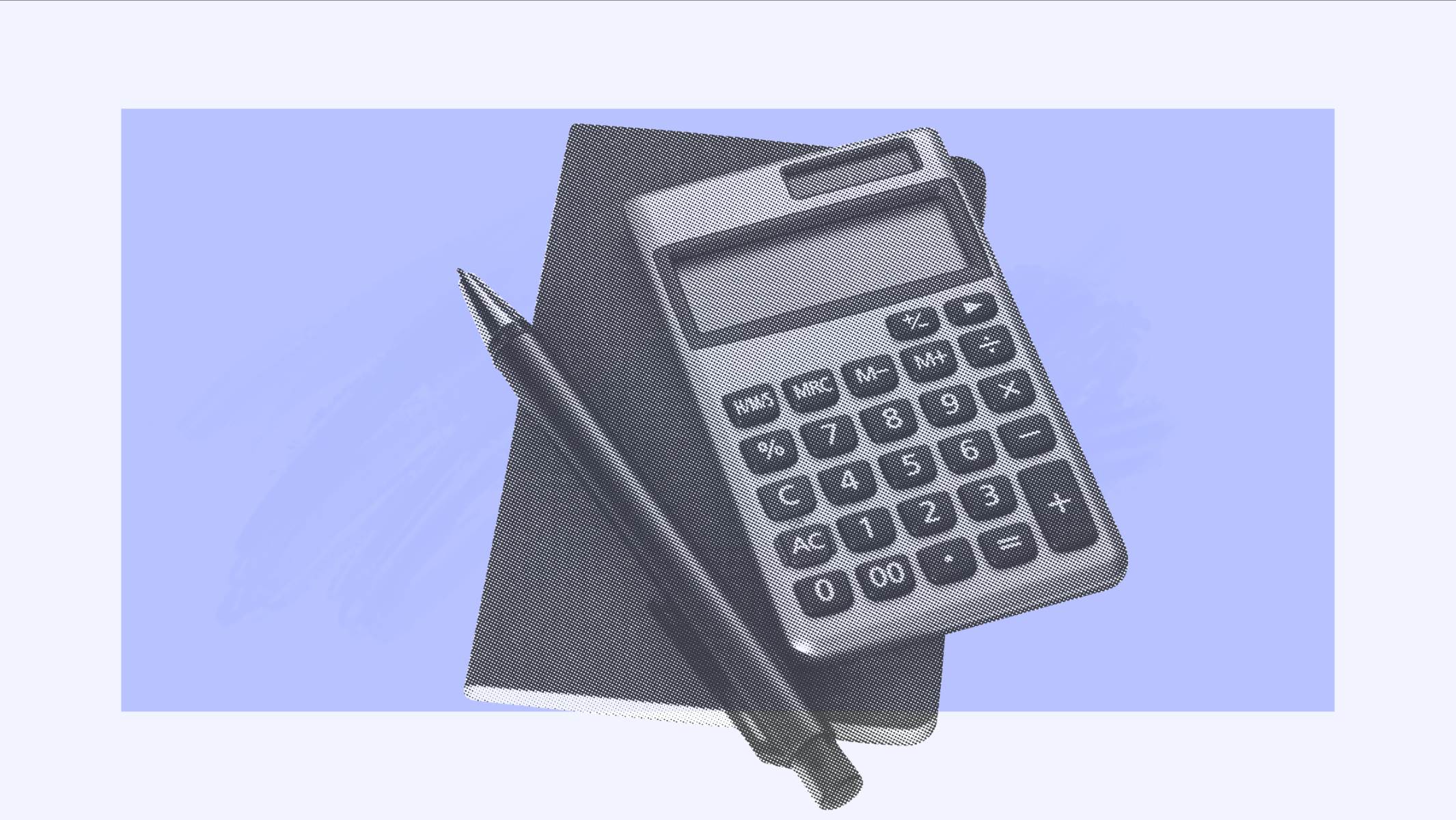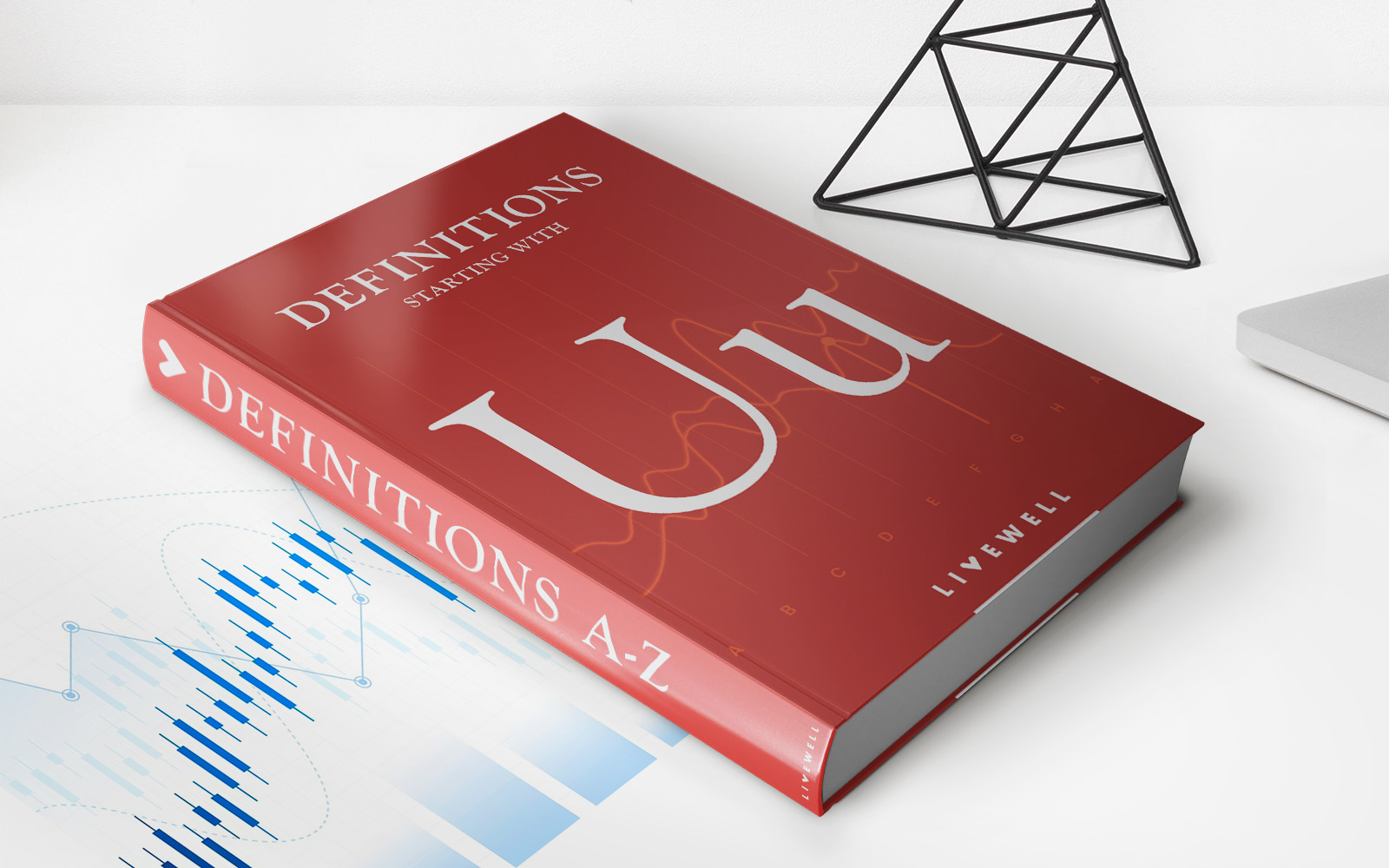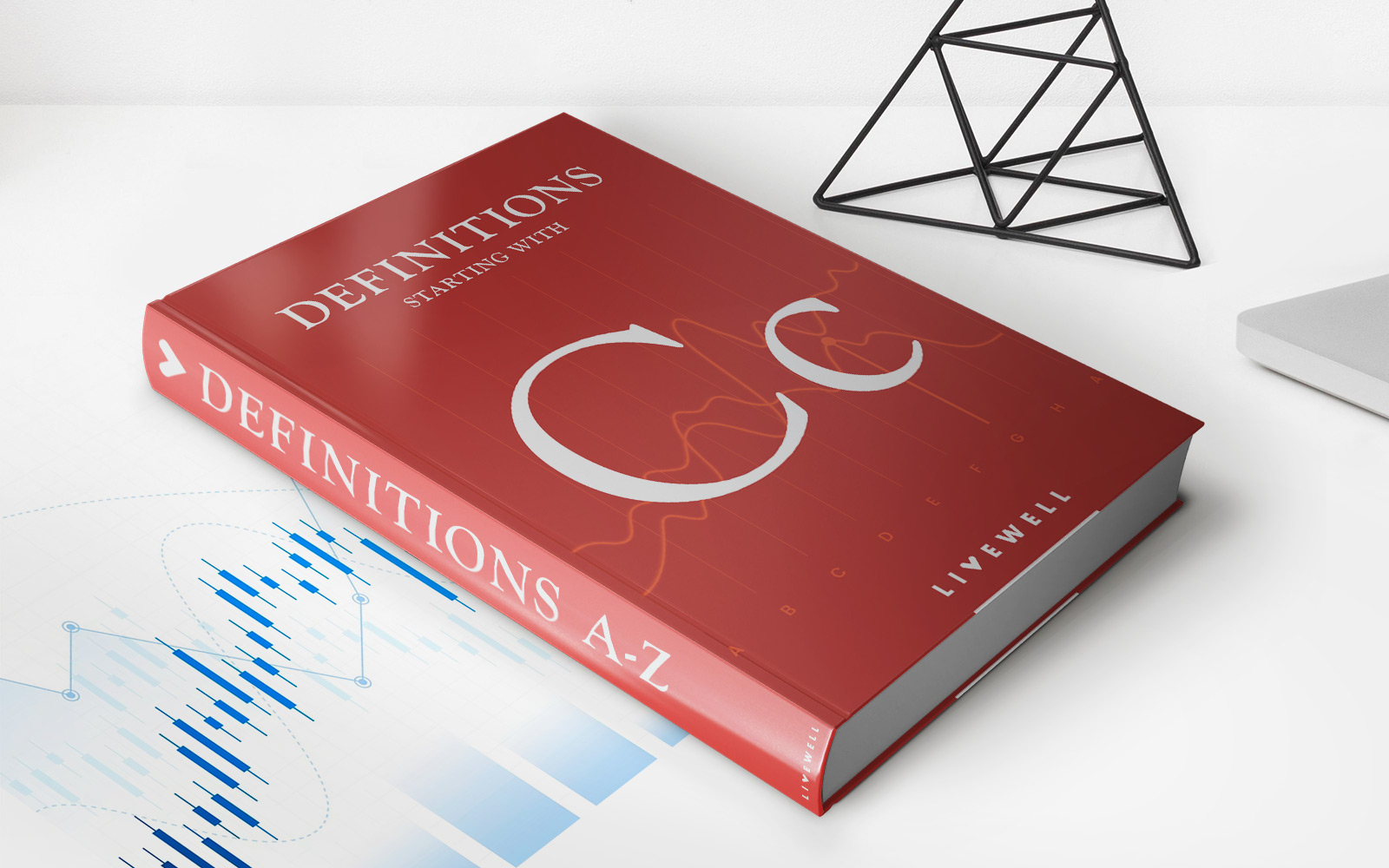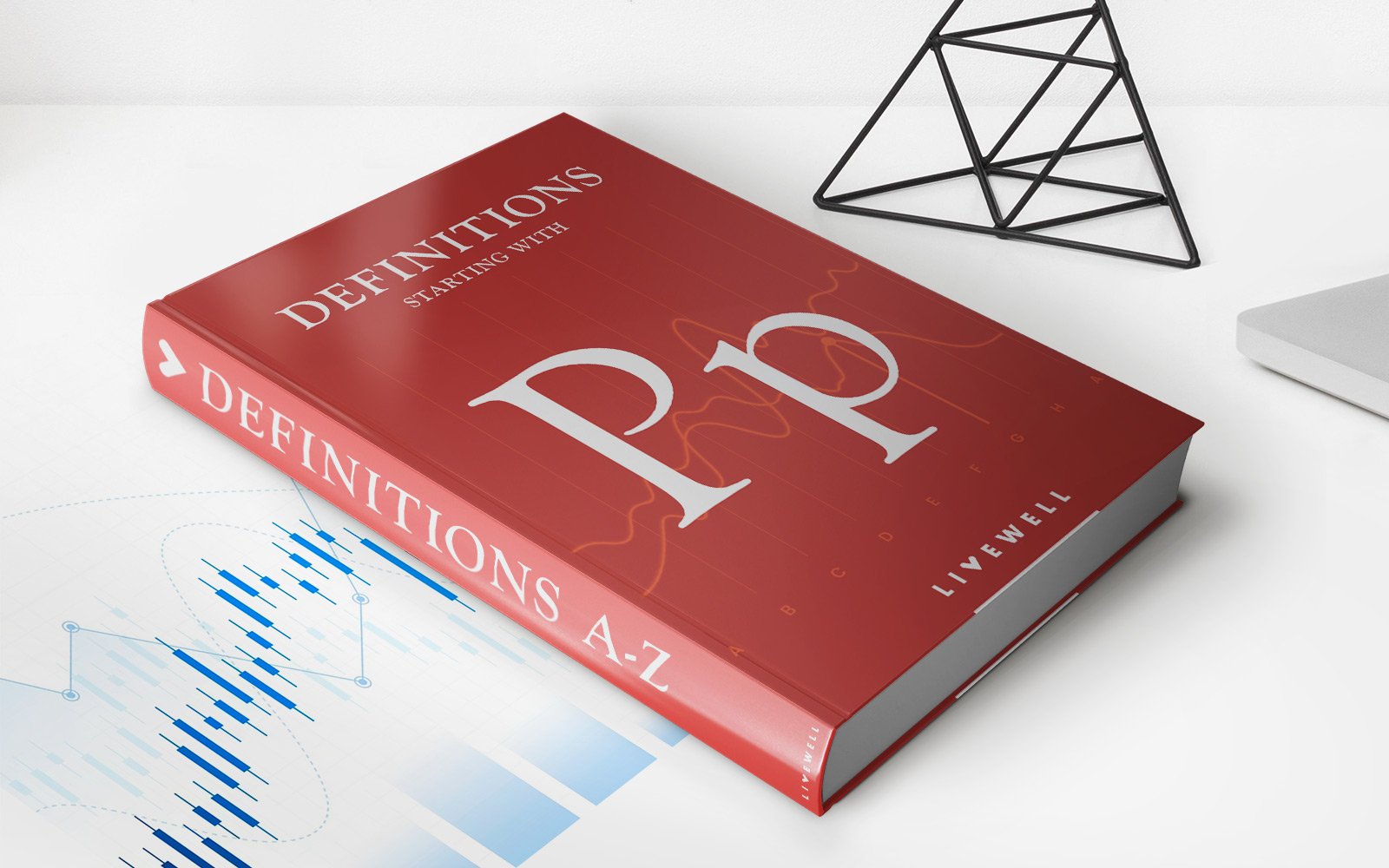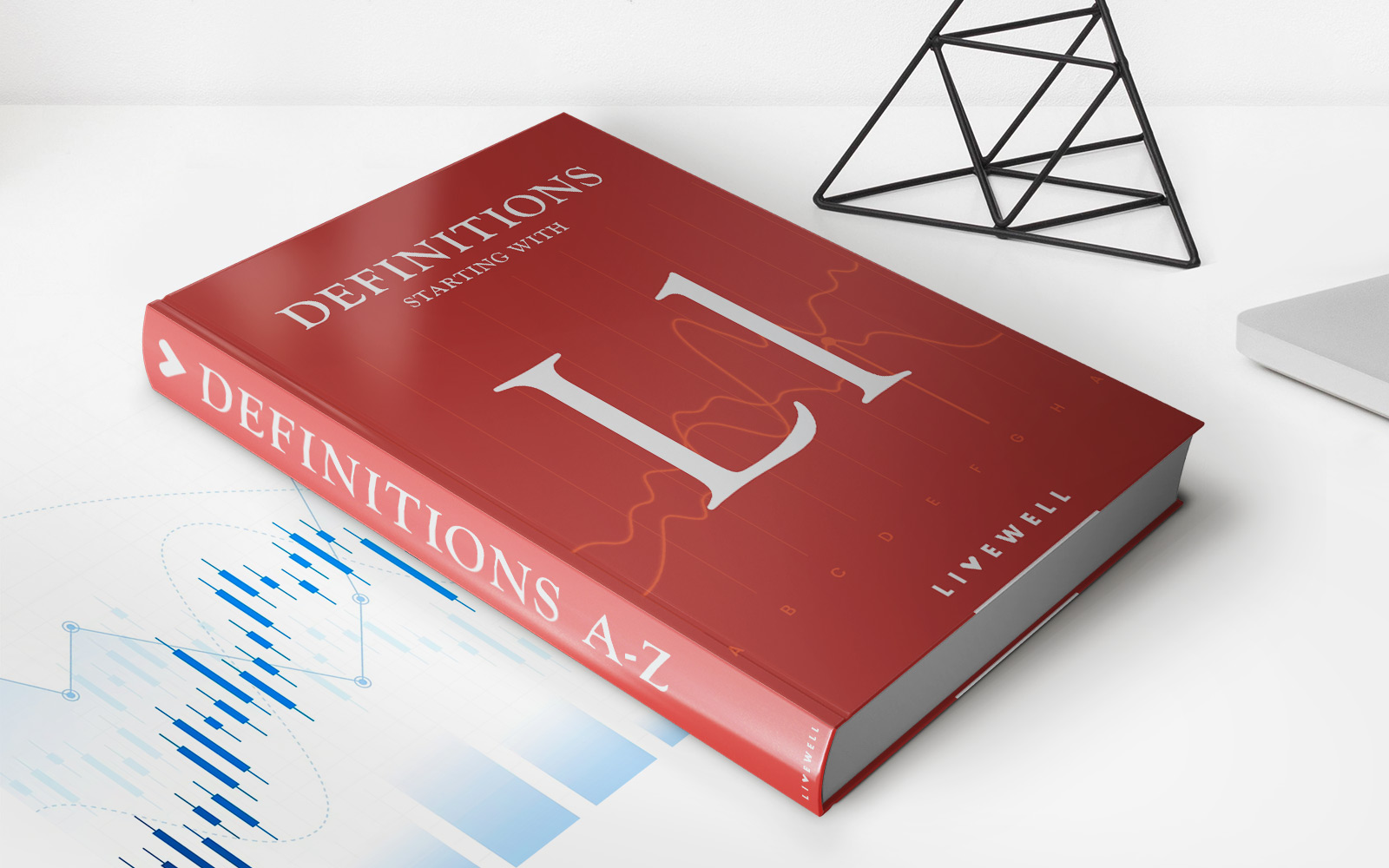Home>Finance>What Is The Easiest Way To Ruin Your Credit With Your Checking Account


Finance
What Is The Easiest Way To Ruin Your Credit With Your Checking Account
Modified: February 21, 2024
Manage your finances responsibly and avoid credit damage by learning the easiest ways to ruin your credit with your checking account. Empower yourself with financial knowledge to make informed decisions.
(Many of the links in this article redirect to a specific reviewed product. Your purchase of these products through affiliate links helps to generate commission for LiveWell, at no extra cost. Learn more)
Table of Contents
- Introduction
- Overdrawing Your Account
- Ignoring Overdraft Fees
- Not Monitoring Your Balance
- Bouncing Checks
- Failing to Pay Fees
- Getting a Negative Balance
- Closing Your Account with Unresolved Fees
- Having Multiple Overdrafts
- Not Communicating with Your Bank
- Using Payday Loans
- Ignoring Debt Collection Notices
- Not Paying Back Overdrafts
- Conclusion
Introduction
Your checking account is a crucial tool for managing your day-to-day finances. It allows you to deposit and withdraw money, pay bills, and make purchases. However, if you misuse or neglect your checking account, it can have a detrimental impact on your credit score. Your credit score is a reflection of your financial responsibility and is used by lenders to determine your creditworthiness. Therefore, it is important to understand the actions that can ruin your credit when it comes to your checking account.
In this article, we will explore the easiest ways to ruin your credit with your checking account. From overdrawing your account to ignoring fees and notices, these actions can quickly damage your credit reputation. By being aware of these pitfalls and taking proactive steps to avoid them, you can protect your credit and maintain a healthy financial profile.
It is essential to note that one-time mistakes or occasional slip-ups may not have a significant impact on your credit score. However, consistently engaging in these harmful behaviors can lead to long-term damage. Let’s delve into the specific actions to avoid when it comes to your checking account and credit score.
Overdrawing Your Account
One of the easiest ways to ruin your credit with your checking account is by consistently overdrawing it. Overdrawing occurs when you spend more money than is available in your account, resulting in a negative balance. When this happens, your bank may charge you an overdraft fee, which can range from $30 to $40 or more per transaction.
Repeatedly overdrawing your account not only leads to excessive fees but also indicates a lack of financial responsibility to potential lenders. It demonstrates a failure to manage your money effectively and can negatively impact your creditworthiness. Additionally, if you do not repay the overdrafted amount promptly, your bank has the right to report the delinquency to credit bureaus, resulting in a negative mark on your credit report.
To avoid this detrimental situation, it is crucial to monitor your account balance regularly and keep track of your spending. Set up alerts or notifications through your bank’s mobile app or online banking platform to receive updates when your account balance is running low. By staying vigilant and being mindful of your account balance, you can prevent yourself from overdrawing and maintain a healthy credit profile.
Ignoring Overdraft Fees
When it comes to managing your checking account, it is essential to pay attention to the fees associated with it, especially overdraft fees. Ignoring these fees can quickly lead to financial trouble and harm your credit.
Overdraft fees are charged by banks when you spend more money than is available in your checking account. These fees can accumulate rapidly, particularly if you continue to make transactions without addressing the negative balance. By ignoring these fees and allowing them to go unpaid, you not only accrue additional debt but also risk damaging your credit score.
If you receive a notice or statement from your bank regarding overdraft fees, it is crucial to take immediate action. Contact your bank to understand the charges, and make arrangements to pay the fees promptly. Ignoring these fees may result in your account being sent to collections, which will impact your credit report and score negatively.
To avoid this situation, make it a habit to regularly review your account statements, and address any fees or discrepancies promptly. By staying on top of your financial obligations and taking proactive steps to resolve them, you can protect your credit and maintain a healthy financial standing.
Not Monitoring Your Balance
One of the biggest mistakes you can make with your checking account is not actively monitoring your balance. Failing to keep track of your account balance can lead to overspending, overdrafts, and ultimately, a negative impact on your credit.
When you don’t monitor your balance, you run the risk of spending more money than you have available. This can result in overdrawing your account, incurring costly overdraft fees, and potentially damaging your credit score. Additionally, if you fail to notice fraudulent or unauthorized transactions, it can result in further financial complications.
It’s important to frequently check your account balance to ensure it aligns with your financial activity. Many banks offer online and mobile banking tools that allow you to easily access your account information. Take advantage of these resources and stay up-to-date with your balances and transactions.
By monitoring your balance regularly, you can identify potential issues early on and take appropriate action to avoid negative consequences. If you notice any discrepancies or unauthorized transactions, contact your bank immediately to report the issue and prevent further damage.
Remember, keeping a close eye on your account balance is an essential part of responsible financial management. It not only helps you maintain a positive credit history but also ensures you stay in control of your finances.
Bouncing Checks
One costly mistake that can severely harm your credit is bouncing checks. Bouncing a check occurs when you write a check for an amount greater than the funds available in your checking account. As a result, the check is returned to the payee or merchant unpaid, often with additional fees imposed by the bank.
Bouncing checks not only indicates a lack of financial responsibility but can also lead to legal consequences. The recipient of the bounced check may report the incident to the authorities, resulting in potential legal action against you. Moreover, if the bounced check remains unresolved, it can be reported to credit bureaus, negatively impacting your credit score.
To avoid bouncing checks, it is crucial to carefully monitor your account balance and ensure that you have sufficient funds before issuing any checks. Keep track of all your upcoming expenses and set reminders to deposit funds if necessary. Alternatively, you can consider using digital payment methods or online bill pay services, which instantly deduct funds from your account, reducing the risk of overdrawing.
If you find yourself in a situation where a check might bounce, take immediate action to rectify the situation. Contact the recipient and explain the situation, and make arrangements to provide valid payment as soon as possible. By addressing the issue promptly, you can mitigate the damage to your credit and maintain a positive financial reputation.
Remember, preventing check bouncing is not only about honoring financial obligations but also safeguarding your creditworthiness and financial well-being.
Failing to Pay Fees
When it comes to your checking account, there are various fees associated with banking services and transactions. Failing to pay these fees can have serious repercussions for your credit and overall financial health.
Whether it’s monthly maintenance fees, overdraft fees, or fees for using out-of-network ATMs, it’s crucial to understand and promptly pay these charges. Ignoring or neglecting to pay these fees can result in significant financial consequences.
Firstly, unpaid fees can accumulate over time, leading to a larger amount owed to your bank. This not only increases your overall debt but may also result in your account being sent to collections. Once an account is sent to collections, it will have a negative impact on your credit score, making it harder to obtain credit in the future.
Furthermore, some banks may report unpaid fees to credit bureaus directly, resulting in a negative mark on your credit report. This negative mark can stay on your credit history for several years and can be detrimental when applying for loans or credit cards.
To avoid the negative implications of unpaid fees, make it a priority to review your account statements regularly. Set reminders for when fees are due and ensure that you allocate enough funds to cover them. If you are experiencing financial difficulties, reach out to your bank to discuss possible solutions or payment arrangements.
By acknowledging and paying your fees on time, you demonstrate financial responsibility and protect your creditworthiness. Remember, a small investment of time and effort in paying fees can save you from significant financial troubles in the long run.
Getting a Negative Balance
Having a negative balance in your checking account can be a red flag for lenders and severely impact your credit score. A negative balance occurs when you spend more money than is available in your account, resulting in a deficit.
When your account has a negative balance, your bank may charge you overdraft fees and potentially report the delinquency to credit bureaus, leading to a negative mark on your credit report. This negative mark can stay on your credit history for several years and can make it challenging to obtain credit or loans in the future.
Getting a negative balance is often the result of poor financial management or unexpected expenses. It is crucial to avoid this situation by closely monitoring your account balance, budgeting effectively, and ensuring that you have sufficient funds before making purchases.
If you find yourself with a negative balance, it is essential to address the issue promptly. Contact your bank to discuss repayment options and make arrangements to bring your account back to a positive balance. Additionally, take steps to prevent future occurrences by implementing strategies such as setting up automatic transfers or alerts to notify you when your account balance is running low.
By being proactive and taking immediate action to address a negative balance, you can minimize the impact on your credit and demonstrate financial responsibility.
Closing Your Account with Unresolved Fees
Closing your checking account without resolving any outstanding fees can have a lasting negative impact on your credit. It’s important to handle any unpaid fees before closing an account to avoid potential repercussions in the future.
When you close an account with unresolved fees, the bank may send the unpaid balance to collections. The collection agency will then attempt to recover the debt, and this negative information can be reported to credit bureaus, resulting in a significant negative impact on your credit score.
Furthermore, an unpaid balance that is sent to collections can stay on your credit report for up to seven years, making it difficult for you to obtain credit or loans in the future. It can also affect your ability to open new bank accounts as some banks may deny applications due to outstanding account balances.
To avoid these consequences, it’s crucial to address any outstanding fees or negative balances before closing your account. Review your account statements, contact your bank to determine the amount owed, and make arrangements to settle the fees. Settling the outstanding balance will help protect your credit and ensure a smooth transition when closing your account.
If you’re unable to pay the full amount immediately, discuss options with your bank, such as setting up a payment plan or negotiating a reduced settlement. Taking proactive steps to address the outstanding fees demonstrates financial responsibility and can help minimize the negative impact on your credit.
Remember, it is always best to resolve any financial obligations before closing your checking account to protect your creditworthiness and maintain a positive financial standing.
Having Multiple Overdrafts
Having multiple overdrafts on your checking account can be a significant red flag for lenders and can lead to severe damage to your credit. It is crucial to avoid repeatedly overdrawing your account as it demonstrates a lack of financial responsibility and can have long-lasting consequences.
Each time you overdraw your account, your bank may charge you an overdraft fee. These fees can add up quickly, especially if you continue to make transactions without addressing the negative balance. Additionally, multiple overdrafts create a pattern of financial instability and can make potential lenders wary of extending credit to you.
Furthermore, multiple overdrafts indicate a reliance on credit to cover daily expenses, which can be seen as a negative financial habit. This can lower your credit score and make it more challenging to secure loans, credit cards, or favorable interest rates in the future.
To avoid multiple overdrafts, it is crucial to manage your checking account carefully. Keep track of your account balance, set up alerts to notify you when your balance is low, and practice responsible spending habits. Consider creating a budget to better manage your finances and minimize the risk of overdrawing your account.
If you find yourself consistently overdrawing your account, it may be beneficial to explore overdraft protection options provided by your bank. This may include linking your checking account to a savings account or applying for a line of credit to cover overdrafts. These options can help prevent multiple overdrafts and protect your credit.
By avoiding multiple overdrafts and demonstrating responsible financial behavior, you can maintain a positive credit profile and increase your chances of obtaining favorable financial opportunities in the future.
Not Communicating with Your Bank
Effective communication with your bank is essential for maintaining a healthy financial standing and minimizing the negative impact on your credit. Failing to communicate with your bank can lead to missed opportunities, unresolved issues, and potential damage to your creditworthiness.
One of the critical aspects of communication with your bank is keeping them informed of any changes in your contact information. If your address, phone number, or email address changes, it’s vital to update your bank promptly. Failing to do so may result in missed account statements, important notices, or even fraudulent activity going unnoticed.
In addition to updating your contact information, it is vital to communicate any financial difficulties or challenges you may be facing. If you’re struggling to meet your financial obligations, reaching out to your bank can lead to potential solutions such as payment deferments, restructuring, or financial counseling.
Failure to communicate can result in missed payments, defaults, or accounts being sent to collections. These negative events can severely impact your credit score and make it challenging to obtain credit or loans in the future.
Furthermore, if you suspect any unauthorized transactions or fraudulent activity in your account, it is crucial to communicate this promptly with your bank. By notifying them immediately, you can minimize the potential financial damage and take necessary steps to protect your credit and personal information.
Remember, open and effective communication with your bank is vital for maintaining a healthy financial relationship. It enables you to address any issues or concerns promptly, find suitable solutions, and protect your creditworthiness.
Using Payday Loans
Using payday loans may provide a short-term solution for immediate financial needs, but it can have a detrimental impact on your credit if not used responsibly. Payday loans typically come with high interest rates and fees, making it easy to fall into a cycle of debt.
Payday loans are designed to be repaid with your next paycheck. However, many borrowers find it difficult to repay the loan in full, leading to extensions or multiple loans to cover the initial debt. This can result in a spiraling debt trap, making it challenging to make timely payments and negatively affecting your credit score.
Furthermore, payday loans may not be reported to credit bureaus directly. However, if you fail to repay the loan, the lender can send your account to collections, which will ultimately be reported to credit bureaus. This negative mark on your credit report can significantly impact your creditworthiness and make it difficult to obtain credit in the future.
Instead of relying on payday loans, explore alternative options when faced with financial emergencies. Consider reaching out to your bank or credit union to discuss short-term loan options with lower interest rates and more favorable repayment terms. Additionally, creating an emergency fund can help you navigate unexpected expenses without resorting to payday loans.
If you currently have payday loans, prioritize repaying them as quickly as possible. Develop a repayment plan and stick to it to minimize the impact on your credit. If necessary, seek financial counseling or assistance to help you manage your debt effectively.
Remember, payday loans should be used as a last resort and with extreme caution. Using them irresponsibly can lead to long-term financial hardship and damage your creditworthiness.
Ignoring Debt Collection Notices
Ignoring debt collection notices is a risky financial behavior that can have severe consequences for your creditworthiness. Whether you received the notice in relation to an unpaid credit card bill, medical expense, or outstanding loan, it is essential to address the situation promptly to protect your credit.
When you ignore debt collection notices, it shows a lack of responsibility and can lead to further financial complications. The debt collection agency may escalate their efforts to recover the debt, including taking legal action against you. This can result in a judgment against you, which will be reported to credit bureaus and significantly impact your credit score.
Furthermore, unpaid debt that is sent to collections can stay on your credit report for up to seven years, making it challenging to obtain credit or loans in the future. It can also affect your ability to secure favorable interest rates or even impact employment opportunities that require a credit check.
If you receive a debt collection notice, it is crucial to take immediate action. Review the notice thoroughly and ensure its validity. If the debt is legitimate, contact the collection agency to discuss possible payment arrangements or negotiate a settlement. Keep records of all correspondence and payments made to ensure accurate documentation.
If you believe the debt is incorrect or part of a fraudulent activity, dispute it in writing with the collection agency and provide any supporting evidence. Remember, it is your right to receive verification of the debt before making any payments.
Ignoring debt collection notices will not make the debt disappear. It is essential to address the issue head-on, communicate with the collection agency, and work towards resolving the debt. Taking proactive steps to resolve outstanding debts will help protect your credit and maintain a positive financial standing.
Not Paying Back Overdrafts
Not paying back overdrafts on your checking account can have severe consequences for your credit and financial well-being. Overdrafts occur when you spend more money than is available in your account, resulting in a negative balance. Failing to repay these overdrafts can lead to a host of financial problems.
When you don’t pay back overdrafts, your bank may charge you additional fees and penalties, exacerbating your financial burden. These fees can accumulate quickly, making it even more challenging to bring your account back to a positive balance. Additionally, your bank has the right to report the delinquency to credit bureaus, resulting in a negative mark on your credit report.
Not paying back overdrafts demonstrates a lack of financial responsibility and can make it challenging to obtain credit or loans in the future. Lenders view unpaid overdrafts as a potential risk and may be hesitant to extend credit to individuals who have a history of not repaying their debts.
To avoid these negative consequences, it is crucial to address overdrafts promptly. Contact your bank and discuss repayment options or negotiate a payment plan to clear the overdrafted amount. Making efforts to repay the overdrafts demonstrates your commitment to honoring your financial obligations and can help protect your credit.
If you are struggling to pay back your overdrafts, consider seeking financial counseling or assistance. A professional can provide guidance on managing your debts, creating a budget, and developing a repayment strategy.
Remember, not paying back overdrafts not only damages your credit but also prolongs your financial hardship. Take proactive steps to address the issue, and work towards resolving the overdrafted amount to regain control of your financial situation.
Conclusion
Managing your checking account responsibly is crucial for maintaining a healthy credit profile. By avoiding certain behaviors and taking proactive steps, you can protect your creditworthiness and financial well-being.
From overdrawing your account to ignoring fees and debt collection notices, the easiest ways to ruin your credit with your checking account are clear. It’s imperative to monitor your balance regularly, communicate with your bank, and address any financial difficulties as soon as possible.
By staying on top of your account balance and avoiding overdrafts, you can minimize the risk of incurring excessive fees and damaging your credit. Additionally, ensuring that you promptly pay any fees associated with your checking account and resolving outstanding debts is essential for maintaining a positive credit history.
Remember, your credit score is influenced by your financial habits, and your checking account plays a significant role in that. By practicing responsible financial management and making informed decisions, you can protect your credit and achieve long-term financial success.
So, take charge of your checking account, be diligent in monitoring your balance, avoid behaviors that can harm your credit, and communicate openly with your bank. By doing so, you’ll be on the path to financial stability and a positive credit standing.
